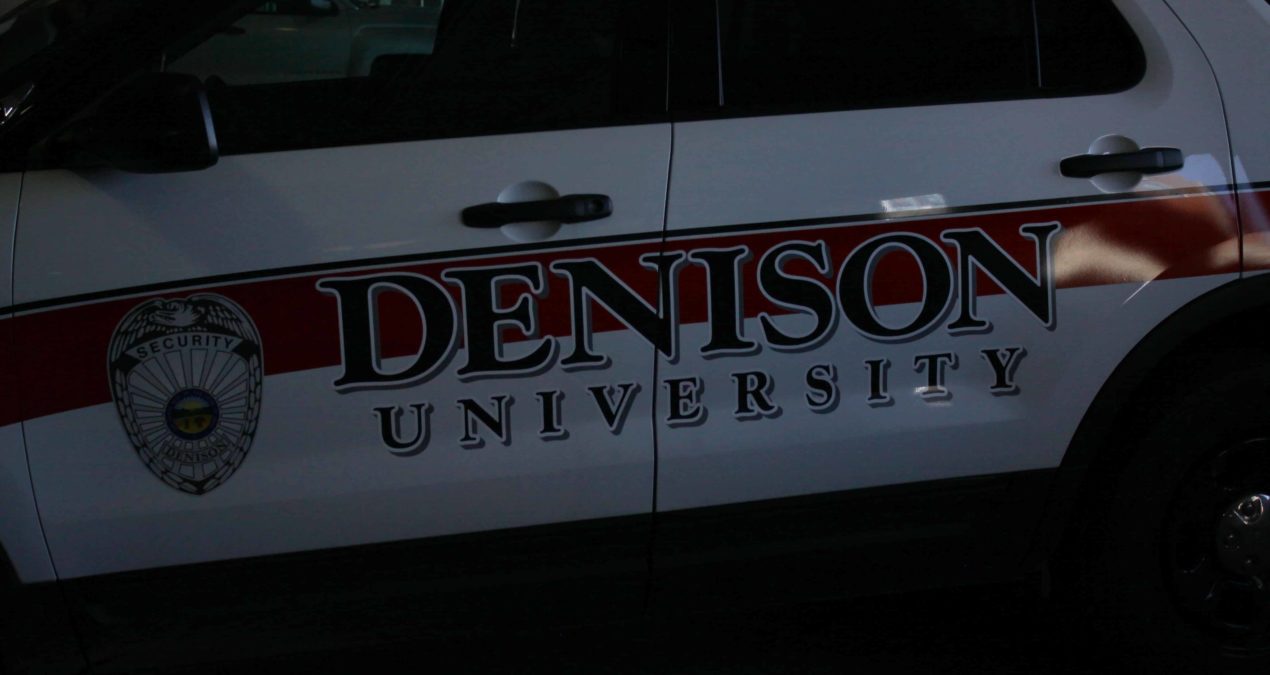By Debbie Gillum
News Editor Emeritus
In the past three years, sex offenses, disciplinary action for drug abuse violations and arrests for liquor law violations have decreased at Denison. In addition, schools similar to Denison in size and atmosphere, like Kenyon and Oberlin, also saw similar decreases.
This data was reported by the Campus Safety and Security Data Analysis Cutting Tool, which discloses data about campus crime and fire reports online to the public. The tool is sponsored by the Office of Postsecondary Education of the U.S. Department of Education.
Under the category of criminal offenses on campus, Denison had 11 forcible sex offenses in 2010, seven in 2011 and four in 2012.
In comparison, Kenyon had a total of seven forcible sexual assaults within the past three years. At Oberlin, the data was fairly inconsistent over the years. Seven sexual offenses occurred in 2010, ten in 2011 and eight in 2012.
Garret Moore, director of security and safety speculated on the reason for the trend at Denison.
“I would have to attribute a decrease in reports of sex offenses to a consequence of lawsuits brought by students charged with those violations.” he said, “A local attorney has filed suit against the victims of reported sexual assaults and probably has created a chilling effect on reports here on campus.”
In terms of arrests on campus for liquor law violations, Denison also saw a noticeable decrease within the past three years. There were 14 arrests in 2010, ten in 2011 and eight in 2012 due to liquor law violations. It is important to distinguish that these students were arrested verses given disciplinary action.
At Kenyon, there was a major drop in violations from 2010 to 2011. There were 17 arrests due to liquor law violations in 2010, two in 2011 and four in 2012.
Oberlin’s data was less consistent with Kenyon and Denison. They had four liquor law violation arrests in 2010, 12 in 2011 and one in 2012.
Moore attributed the decline in the number of liquor law violations on the hill to be because of party registration. Rather than being arrested, a more common consequence of liquor or drug violation is disciplinary action.
In terms of drug abuse violations, this has decreased. In 2010 there were 84 people referred for disciplinary action, 83 in 2011 and 48 in 2012.
Disciplinary action for liquor law violations is less consistent at Denison. In 2010 there was 185 people referred for disciplinary action, 217 in 2011 and 191 in 2012.
This data only represents up to 2012 but Moore predicts that future data will not continue the downward trend. “We have experienced an uptick in drug violations this school year and these numbers are expected to be greater than in years past,” he said.
For Kenyon, they saw a slight increase in liquor law violations with 210 violations in 2010, 231 in 2011, and 233 in 2012.
At Oberlin, the numbers started out lower than both Denison and Kenyon but spiked in 2012. In 2010, 135 students were referred for disciplinary action for liquor law violations, 36 in 2011 and 278 in 2012.
It will be interesting to see what the 2013 and 2014 data reveals about Denison.

